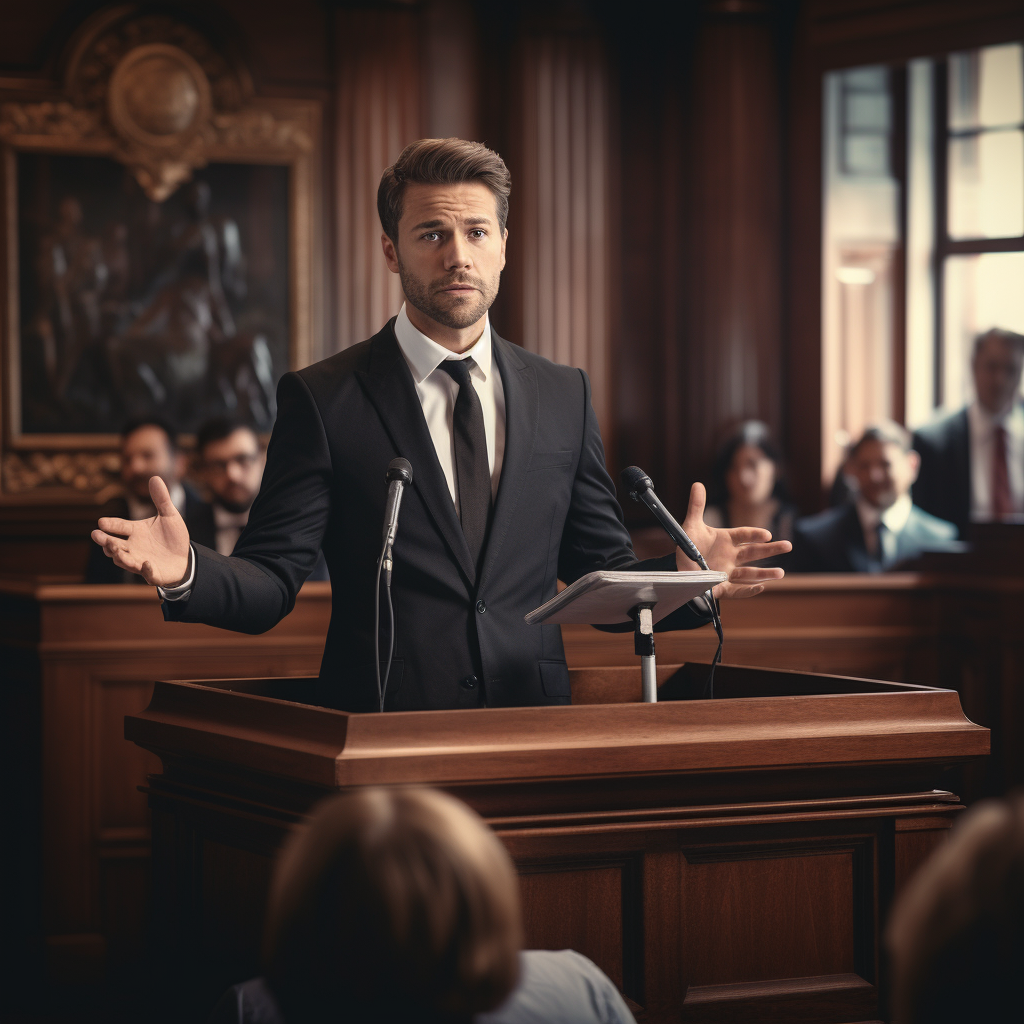Understanding your rights as a cyclist is crucial, particularly when navigating the aftermath of an accident akin to the JB bicycle accident. Such incidents not only highlight the vulnerabilities cyclists face on the road but also the imperative need for legal protection and awareness. In the case of JB’s incident, the nuances of bicycle law and the rights entitled to cyclists came to the forefront, showcasing the complexities involved in such cases.
As a cyclist, it is essential to know that you have the same rights to the road as any motor vehicle driver. This means you are entitled to legal protection when involved in a traffic accident. Whether you are commuting to work, enjoying a leisurely ride, or training for an event, your safety is paramount, and the law is there to uphold it. However, many cyclists are unaware of their rights or the steps to take when involved in an accident.
At Peterson Law Offices, we are committed to ensuring that cyclists’ rights are recognized and upheld. If you have been in a bicycle accident like JB’s, it is essential to seek knowledgeable legal counsel to navigate the complexities of your claim. Contact us now by phone, form, or email for expert advice and representation, ensuring that your rights are protected and you receive the compensation you deserve.
Understanding Bicycle Accident Liability and Negligence

When a bicycle accident occurs, determining liability is a multifaceted process that hinges on the concept of negligence. Negligence refers to the failure to exercise a level of care that a reasonably prudent person would under similar circumstances. In the realm of cycling accidents, this can manifest in various forms, such as a driver’s inattention, a cyclist’s failure to follow traffic laws, or even poorly maintained road conditions.
To establish liability, one must demonstrate that the other party acted negligently and that this negligence was the direct cause of the accident. For cyclists, this means proving that a driver, another cyclist, or a municipality failed to act with due care. Examples include a driver texting while operating a vehicle, a cyclist running a red light, or a city failing to address known hazards on a cycling path.
Documenting evidence at the scene is critical and can include photos of the accident site, witness statements, and police reports. This evidence is invaluable in constructing a solid case to demonstrate the other party’s negligence. Additionally, understanding the nuances of local traffic laws is paramount, as these regulations will play a significant role in the liability assessment.
In some cases, there may be shared liability, where multiple parties, including the cyclist, are found to have contributed to the accident. Jurisdictions vary in how they handle such scenarios, with some applying a comparative negligence rule, allowing a cyclist to recover damages even if they are partially at fault, albeit reduced by their percentage of fault.
The Importance of Helmet Laws in Cycling Accidents

Helmet laws play a critical role in the aftermath of cycling accidents and can significantly impact both the cyclist’s safety and the legal proceedings that may follow. In many jurisdictions, helmet use is mandated by law for cyclists, particularly for minors, and failure to comply with these laws can influence the outcome of an accident claim. Helmets are proven to reduce the risk of serious head injuries, which are common in bicycle accidents, by absorbing the impact force during a collision.
From a legal standpoint, the adherence to helmet laws can affect the determination of fault and the damages awarded. In personal injury claims following a jb bicycle accident, the defense may argue that the cyclist’s injuries were exacerbated by the lack of a helmet, potentially leading to a reduction in compensation under the concept of contributory negligence. However, it should be noted that the absence of a helmet does not automatically negate the liability of another party who may have caused the accident through negligent behavior.
It is essential for cyclists to understand the helmet laws specific to their area, as these regulations can vary widely. Some regions require helmets for all riders, while others may have age-specific rules or no helmet laws at all. Regardless of legal requirements, wearing a helmet is a prudent safety measure that can provide a critical layer of protection for cyclists and serve as an affirmative defense in the event of an accident.
In conclusion, while helmet laws are an important consideration in cycling safety and legal claims, they should be viewed within the larger context of responsible cycling practices and the duty of all road users to exercise care and prevent accidents.
How to Document and Report a Bicycle Accident

Documenting and reporting a bicycle accident is a crucial step that can significantly influence the outcome of any legal claims or insurance settlements. In the chaotic aftermath of a jb bicycle accident, it is important to remain as calm and collected as possible to ensure all necessary information is accurately captured.
First and foremost, if you’re involved in a bicycle accident, assess yourself for injuries. If you or anyone else is injured, call 911 immediately. Safety is the priority. Once any urgent medical needs are addressed, begin gathering evidence from the scene. Take photographs of the accident location, your bicycle, any vehicles involved, and any visible injuries you sustained. Capturing the conditions of the road, traffic signs, and weather can also be helpful.
Exchange information with any other parties involved in the accident, including names, contact details, and insurance information. If there are witnesses, ask for their contact information as well; their testimonies can be invaluable. Make sure to file a police report; law enforcement officers will document the accident and create an official report which can be essential when filing an insurance claim or pursuing a legal case.
After leaving the scene, it is advisable to write down your own detailed account of what happened while the events are still fresh in your mind. Include the time, date, and exact location, as well as your recollection of the events leading up to, during, and following the accident.
Finally, consult with a legal professional experienced in bicycle accidents. They can guide you through the process of preserving your rights and seeking compensation for damages. Accurate and thorough documentation is vital, as it provides a foundation for your legal case and helps to ensure that you can effectively seek the justice and recovery you deserve.
Navigating Insurance Claims After a Bicycle Accident
Navigating insurance claims after a bicycle accident can be a complex and sometimes frustrating process. However, understanding the steps involved can help cyclists secure the compensation they need for recovery. Whether you are dealing with your own insurance provider or that of another party, it is crucial to be prepared and informed.
Initially, you should notify your insurance company about the accident as soon as possible. Provide them with all the documentation you’ve collected, including the police report, photos of the scene, and any witness statements. This will help substantiate your claim and provide a clear picture of the incident.
When dealing with insurance adjusters, be mindful of what you say and how it might be interpreted. They are trained to minimize the company’s payouts, so it’s important to stick to the facts without speculating or admitting fault. It is also a good idea to keep a record of all conversations and correspondences with the insurance company.
Understanding the terms of your insurance policy is essential. Familiarize yourself with the coverage limits, deductibles, and what types of damages are covered. In some cases, your health insurance may cover medical expenses, while your auto insurance might provide benefits under an uninsured or underinsured motorist provision, should the other party be at fault and lacking adequate coverage.
Lastly, consider seeking the assistance of an attorney specializing in bicycle accidents and insurance claims. A professional can navigate the complex language of insurance policies, negotiate with adjusters, and ensure that your claim is handled fairly. An experienced attorney can also advise you on the possibility of pursuing additional compensation through a personal injury lawsuit if the insurance claim does not adequately cover your losses and damages.
Legal Steps to Take Following a Bicycle Accident

The moments following a bicycle accident are critical, not only for your health but also for any legal action that might ensue. The first step is always to seek medical attention, even if injuries seem minor at the time. Trauma can manifest hours or days later, and having a medical record from the outset is vital for your health and any subsequent legal claims.
Once your immediate health concerns are addressed, it’s important to gather as much evidence as possible from the accident scene. This includes taking photographs, collecting contact information from witnesses, and obtaining a copy of the police report. All of this information will be crucial when building your case.
Retain all documentation related to the accident and your injuries, such as medical bills, doctor’s notes, and any correspondence with your employer regarding missed work or lost wages. This documentation will form the backbone of your claim for damages.
It is also crucial to be cautious about any communication with insurance companies. Do not make any statements or accept any settlements without consulting a legal professional. Insurance companies often aim to settle quickly and for as little as possible, which may not be in your best interest.
At this juncture, contacting a skilled personal injury attorney becomes essential. An attorney with experience in bicycle accidents will understand the nuances of the law, how to negotiate with insurance companies, and how to build a strong case on your behalf. Contact us now by phone, form, or email to ensure that your rights are protected and that you receive the full compensation you deserve. With the right legal support, you can focus on your recovery while we handle the legal complexities.
Remember, taking the right legal steps after a bicycle accident is a decisive factor in the outcome of your case. Don’t navigate this challenging time alone; let the expertise of Peterson Law Offices be your guide. Contact us now to schedule a consultation and take the first step towards securing justice and fair compensation.

